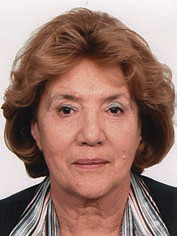Prof. dr. sc. Jasna Kniewald (Zagreb, 24. VI. 1938. – Zagreb, 7. II. 2018.), biotehnološka inženjerka, stručnjakinja za toksikologiju.
Na Biotehnološkom odjelu Tehnološkoga fakulteta (→ Prehrambeno-biotehnološki fakultet; PBF) u Zagrebu diplomirala je 1962. te doktorirala 1965. disertacijom Kinetika adicije halogena i halogenovodičnih kiselina na nezasićene organske kiseline, praćena pomoću redoksokinetičkog efekta (mentori T. Marković i → P. Mildner). Znanstveno se usavršavala u Farmakološkom institutu Mario Negri u Milanu 1969.–1970. Na Zagrebačkom sveučilištu od 1962. radila je u Institutu za fizikalnu kemiju, a od 1975. na Tehnološkome fakultetu odn. na PBF-u od 1979., gdje je od 1988. bila redovita profesorica. Predavala je kolegije Toksikologija hrane, Osnove toksikologije, Toksikološki aspekti pripreme hrane, Metodika znanstvenog rada i Zaštita intelektualnog vlasništva. Osnovala je Laboratorij za toksikologiju (1988.) kojega je bila pročelnica do umirovljenja 2008.
Bavila se toksikologijom hrane i ekotoksikologijom, posebice toksikološkim učincima pesticida na reprodukciju, toksikinetikom i toksikodinamikom postojanih organskih spojeva te toksičnim učincima endokrino modulatornih spojeva.
Bila je 1985.–1994. voditeljica dvaju međunarodnih projekata u suradnji s ministarstvom poljoprivrede SAD-a, za realizaciju kojih je primila više priznanja. Autorica je udžbenika Metodika znanstvenog rada (1993). Bila je članica predsjedništva Hrvatskoga biokemijskog društva (1981–95) i Hrvatskoga toksikološkog društva (1992–2007).
Osim što je bila članica HATZ-a od 1994., u Akademiji je vršila niz dužnosti:
- 1993. – 1997. tajnica Odjela bioprocesnog inženjerstva;
- 2005.-2009. predsjedateljica Odbora za međunarodnu suradnju;
- 2013.-2017. članica Znanstvenog vijeća.
- Također, 2015. godine za svoje je zasluge primila posebno priznanje,Medalje Akademije tehničkih znanosti Hrvatske.
Izvor:
https://tehnika.lzmk.hr/kniewald-jasna/

